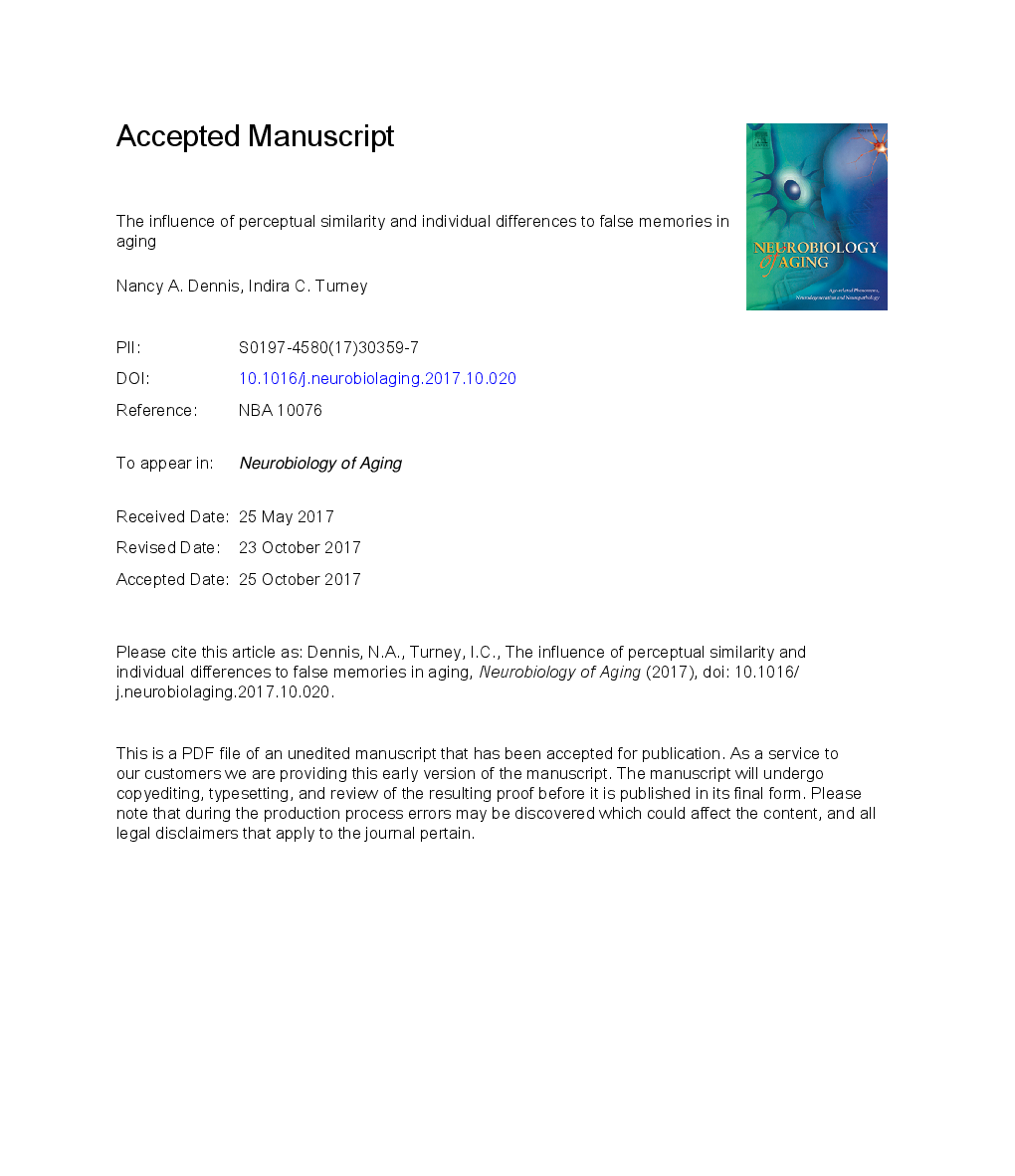ترجمه فارسی عنوان مقاله
تأثیر تشابه ادراک و تفاوتهای فردی در خاطرات دروغین در پیری
عنوان انگلیسی
The influence of perceptual similarity and individual differences on false memories in aging
| کد مقاله | سال انتشار | تعداد صفحات مقاله انگلیسی |
|---|---|---|
| 117912 | 2018 | 41 صفحه PDF |
منبع

Publisher : Elsevier - Science Direct (الزویر - ساینس دایرکت)
Journal : Neurobiology of Aging, Volume 62, February 2018, Pages 221-230
ترجمه چکیده
تحقیقات نادرست حافظه پیشین نشان داده است که خاطرات نادرست بزرگسالان سالخورده بر اساس بیش از حد وابسته به پردازش جسد در غیاب جزئیات خاص مورد استفاده قرار می گیرند. با این حال، مطالعات حافظه کاذب به ندرت به نقش دقیق آیتم های مورد مشابه در مکانیسم های شناختی و عصبی که خاطرات نادرست ادراکی در افراد مسن تر است، توجه می شود. علاوه بر این، کار در آزمایشگاه ما پیشنهاد کرده است که هنگام بررسی پایه عصبی خاطرات دروغین در افراد مسن، به همان اندازه مهم است که متغیرهای متغیر فرد در رفتار را در نظر بگیریم. با توجه به هر دو عامل در ذهن، مطالعه حاضر اولین مورد برای بررسی چگونگی تفاوت های کنترل شده و سیستماتیک در رابطه ادراکی بین اهداف و لجبازی و تفاوت های فردی در شناخت درست و غلط به پایه عصبی حافظه های واقعی و نادرست در افراد مسن بود. نتایج نشان می دهد که متغیر بین متغیر در عملکرد حافظه فعالیت های عصبی را در مناطق کلیدی مرتبط با خاطرات نادرست در پیری تعدیل می کند، در حالیکه تفاوت های سیستماتیک در تشابه ادراکی فعالیت های عصبی مرتبط با خاطرات دروغین را مدول نمی کند.

